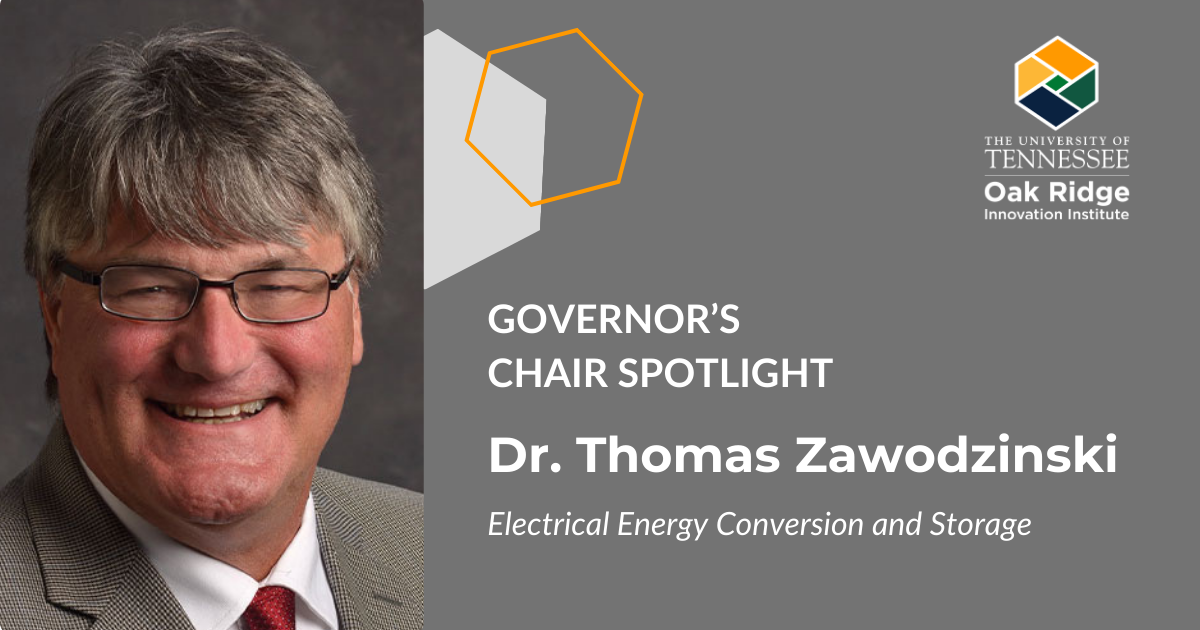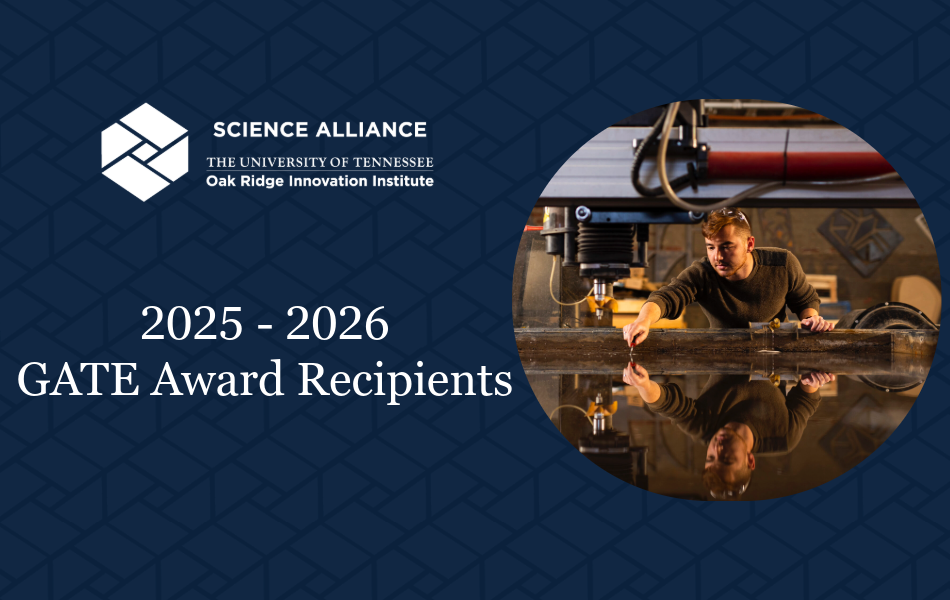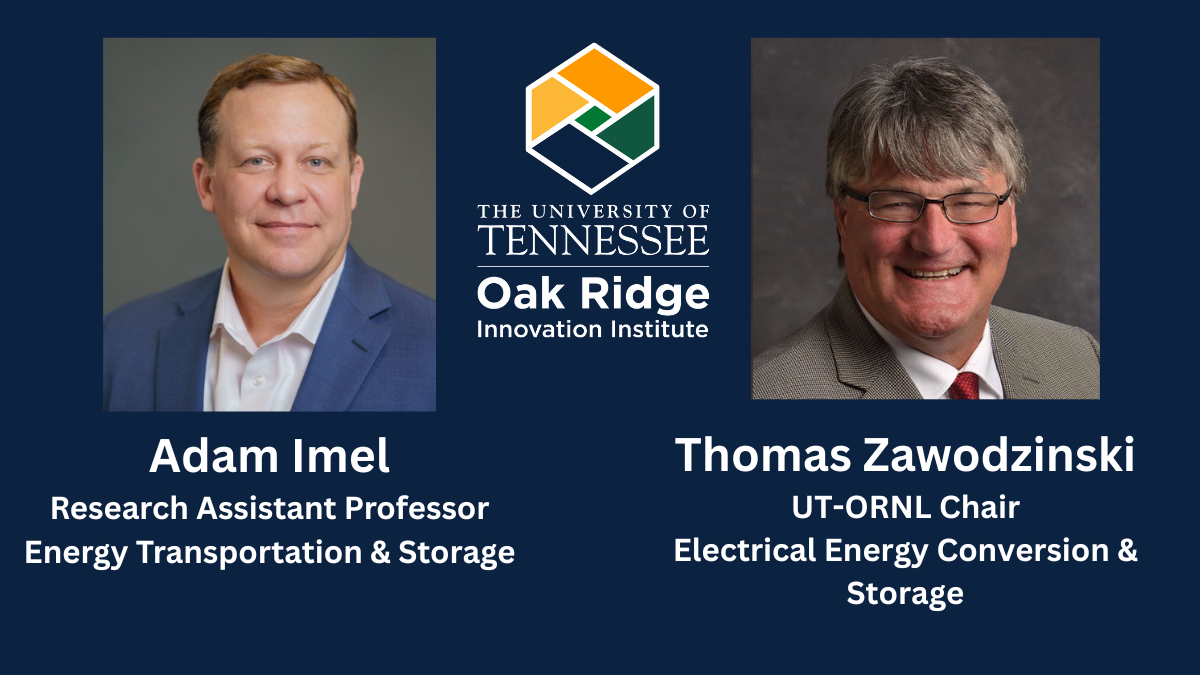Thomas Zawodzinski has always loved learning, whether it was literature, biology, chemistry, or engineering.
He describes himself as a “blue collar boy” from Buffalo, N.Y., the oldest of seven siblings, and a first-generation college student who paid his college bills with scholarship money and earnings from delivering newspapers. Always an outstanding student, he loved—and still loves—figuring out how things work and making discoveries.
Now the UT-ORNL Governor’s Chair for Electrical Energy Conversion and Storage, Zawodzinski is a leader in the field of fuel cells and battery technologies, an area that the UT-Oak Ridge Innovation Institute has prioritized as one of their top convergent research initiatives for UT-ORNL joint research.
Zawodzinski said batteries are chemical reactors, sometimes used to make energy and sometimes used to produce new things.
“We literally go all of the way from molecules to devices,” he said.
His team has found ways to improve technology and materials in fuel cells, membranes, redox flow batteries, and metal-air batteries. In the process, they’ve discovered biosensors and sensors that can be used in creating chemical warfare agents, artificial muscles, and electrochemical reactors.
Before coming to UT in 2009 as the Governor’s Chair with dual appointments in UT’s Department of Chemical and Biomolecular Engineering and Oak Ridge National Laboratory’s Division of Materials Science and Technology, he spent 13 years at Los Alamos National Laboratory. There, he and his colleagues gained international reputations as experts in fuel cell design and improvement.
“Nothing like feeling like a rock star to make you stick with something,” he joked.
That led him to Case Western Reserve University where, bypassing the typical tenure process, he was hired as the F. Alex Nason Professor of Engineering, director of the Case Advanced Power Institute, and the Ohio Eminent Scholar in Fuel Cells.
Using his expertise in the field, he has served as a U.S. representative at international fuel cell conferences and participated in fuel cell and battery discussions with China, Japan, Italy, and the United Kingdom. Among Zawodzinski’s anticipated projects: Leading the university research aspect of the Second Life Battery Storage Project, an effort to repurpose used electric vehicle (EV) batteries to bolster America’s electric grid. In this project, which involves Nissan, Middle Tennessee Electric, Seven States Power Corp., the UT-Oak Ridge Innovation Institute and Tennessee State University. Nissan’s used EV batteries are given “second life” as a Battery Energy Storage System (BESS) at Nissan America’s headquarters in Franklin, Tenn.
Zawodzinski is also part of the UT team involved in Breakthrough Electrolytes for Energy Storage and Systems (BEES2). This project, led by Case Western Reserve University, seeks to develop unique, radically different electrolytes for improving large-scale batteries that will serve as an “energy warehouse” and bridge the gap between energy sources, like solar cells or wind turbines, and consumer demand to ensure consistent and predictable energy availability.
In addition, he’s working on developing new materials as part of the Department of Energy’s Million Mile Fuel Cell Truck consortium, which seeks to develop zero-emission fuel cell trucks powered by hydrogen, and he’s beginning a “green methanol” project that involves converting carbon dioxide into methanol. He is also helping to develop high-energy density batteries for electric vertical take-off and landing “eVTOLs” as part of an Army project.
Zawodzinski, who did his undergraduate, graduate, and doctoral work at The State University of New York (SUNY)/Buffalo, is a fellow of the Electrochemical Society (ECS) and a member of the American Institute of Chemical Engineers (AIChE) and the American Chemical Society (ACS).
His awards include the 2016 ECS Energy Technology Division Research Award and he is an ECS Fellow. He holds about a dozen patents.
Throughout his career, Zawodzinski has had strong collaborations with industry, including carrying out joint research projects, participating on boards of start-ups and even licensing and spinning out technology. He currently has ongoing work with four Knoxville-area start-ups.
While Zawodzinski spends much of his time in Knoxville, he and his wife, Christine, also have a house near her family in Rochester, N.Y. The couple’s grown son works as a nurse tech in Rochester.
When he’s not working, Zawodzinski enjoys reading and cooking. An avid Buffalo Bills fan, he still has season tickets even though he can’t make it to every game




